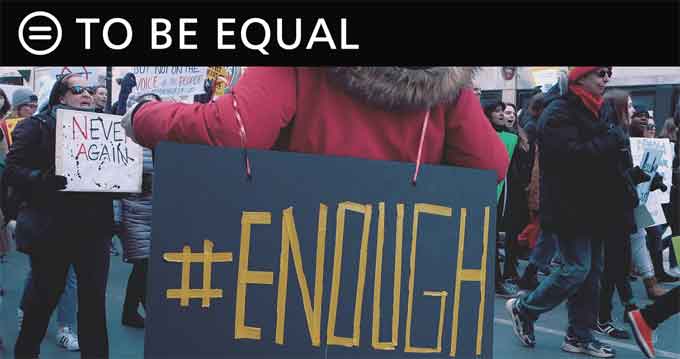
“The biggest movement and shift that we’ve seen in this culture is simply because of the victims. When victims and survivors are coming to the legislative bodies and they’re telling their stories and they’re appealing, we’ve seen movement. We’ve seen movement. And so it’s a matter of changing one mind and one heart at a time. You change the culture, and the policy change comes right on the heels of that.” – Congresswoman Lucy McBath, mother of 17-year-old Jordan Davis, shot to death in an argument about loud music.
The facts on gun safety are clear.
Since 1994, background checks have blocked over 3.5 million gun sales to felons, domestic abusers, and other people who aren’t allowed to have guns under existing law.
About 90 percent of Americans support background checks for all firearms sales.
But Senate Majority Leader Mitch McConnell refuses to allow the senate to vote on bills, passed by the House of Representatives, that would expand background checks to private sales and extend to at least 10 days the amount of time firearms dealers must wait for a response from the background check system before the sale can proceed.
A ban on military-style assault weapons in effect from September 1994 through 2004 was associated with a 25 percent drop in gun massacres and a 40 percent drop in fatalities.
About two-thirds of American support a ban on military-style assault weapons.
But a bill to restrict the sale of military-style assault weapons remains mired in the Senate Judiciary Committee.
One of the people who should have failed a background check to buy a handgun was Dylann Roof of Columbia, South Carolina. Because the check was not completed within three days, Roof was able to buy a gun.
A few months later, Roof shot and killed nine people at Emanuel African Methodist Episcopal Church in Charleston.
One of the people who was prevented from buying a gun because he failed a background check in 2014 was Seth Ator of Odessa, Texas. Ator had been committed to a psychiatric institution in 2006 because he was deemed a danger to himself and/or others. Because of a loophole in the law – a loophole that would be closed by the House-passed Bipartisan Background Checks Act – Ator was able to purchase an AR-15 style rifle through a private sale.
Ator used that rifle to shoot nearly 30 people in Odessa and Midland, Texas, on Saturday, killing seven and wounding 22.
There were six other mass shootings in the United States on Saturday, leaving five more dead and another 20 injured. There have been 287 mass shootings in of 2019 – more than a shooting per day. There have been 10,018 deaths and 20,061 injuries from gun violence this year, and that’s not even including suicides by firearms, which claim about 23,000 lives each year.
Stopping gun violence is now the third-most important issue for voters, after health care and immigration, according to a recent poll.
The ongoing epidemic of gun violence prompted Walmart to stop selling stop selling handgun ammunition and “short-barrel rifle ammunition,” such as the .223 caliber and 5.56 caliber, that can also be used on assault-style weapons. Walmart and Walmart and Kroger also have requested that customers not openly carry firearms in their stores.
These decisions mark a significant turning point in the effort to protect Americans from gun violence. Senate leaders have, instead, chosen to continue along the path of cowardice.
As the House passage of the background bill and the Walmart and Kroger decisions demonstrate, the firearm industry is losing its stranglehold on our political and legislative institutions. But not fast enough. As long as Senate Leader Mitch McConnell refuses to consider the commonsense gun safety laws passed by the House, it’s clear his loyalties lie with the gun lobby and not with the American people.
We must do everything we can to urge the Senate to do its job. Call (202) 224-3121 to speak to your Senators and let them know they were elected to defend your safety and your family, not the profits of the gun industry.
Marc H. Morial is President and CEO of the National Urban League. He was a Louisiana State Senator from 1992-1994, and served as mayor of New Orleans from 1994 to 2002. Morial is an Executive Committee member of the Leadership Conference on Civil Rights, the Black Leadership Forum and Leadership, and is a Board Member of both the Muhammad Ali Center and the New Jersey Performing Arts Center.


